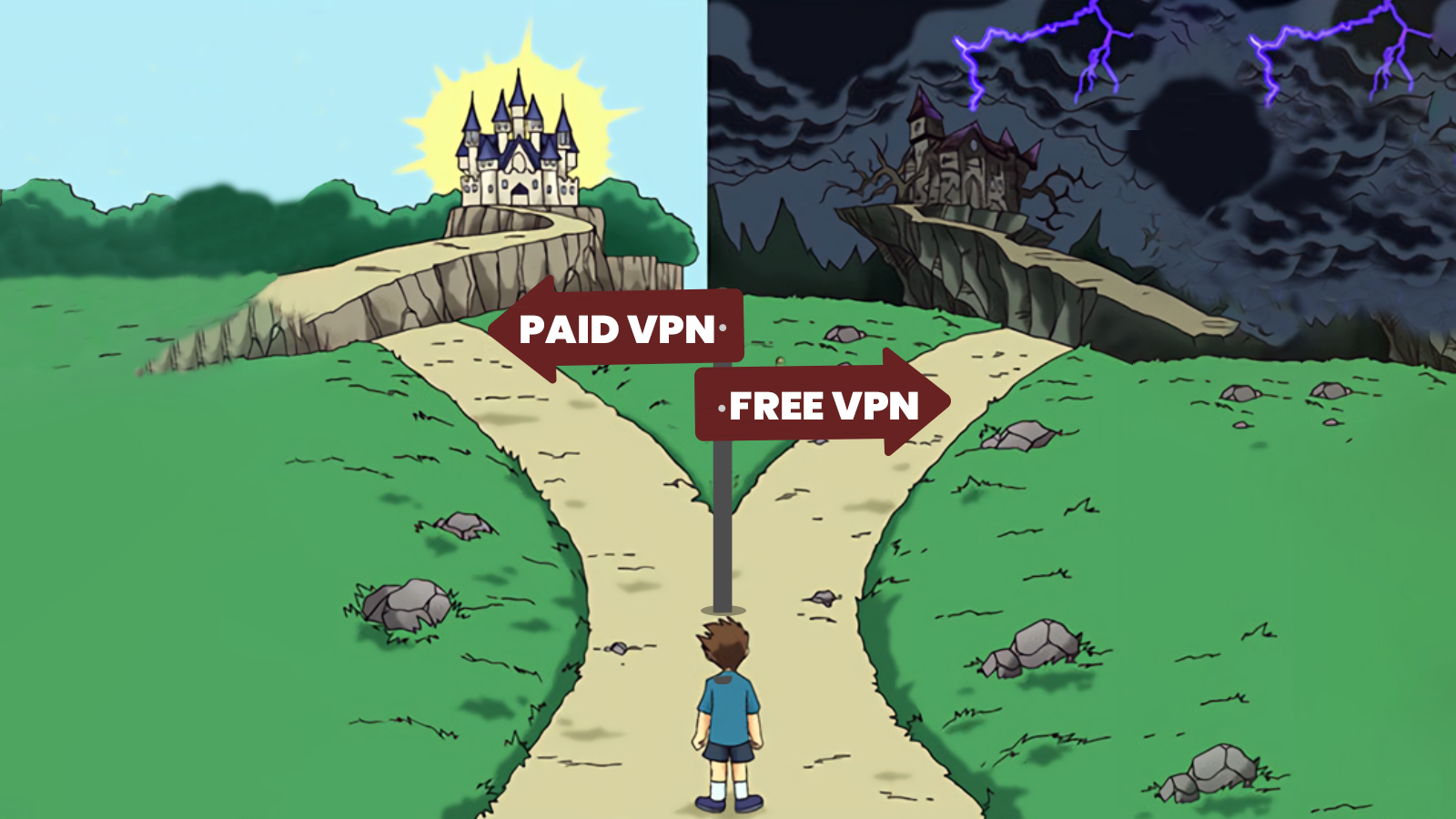VPNs, or virtual private networks, are already a common tool for internet protection and privacy. By offering a safe and encrypted connection, they shield users’ online activities from prying eyes. Although there are both free and paid VPN options, there are hazards associated with the free ones that could compromise your online security and privacy. Protecting your online privacy is more crucial than ever in our increasingly digital world, and Virtual Private Networks (VPNs) are a well-liked solution for improving online security. But not all VPNs are made equal, and free VPNs in particular present serious hazards that could jeopardize your security and privacy. In this article, we will discover why you should not use a free VPN and what are some best alternative premium VPN at an affordable cost.
Why Do People Use VPNs?
VPNs are used for several purposes, such as accessing geo-restricted material, internet privacy, and security. Let us look at these causes using pertinent data.
Online Privacy
Protecting one’s online privacy is one of the main reasons individuals use VPNs. By establishing an encrypted connection, virtual private networks (VPNs) shield customers’ online activities from prying eyes and their internet service provider (ISP).
Security
Additionally, virtual private networks offer consumers improved security features like defense against digital threats like malware, phishing, and hacking.
Accessing Geo-Restricted Content
A lot of people use VPNs to get access to geo-restricted content, including websites or streaming services that are forbidden in their nation.
Remote Work
Remote workers who need to safely access company networks and resources are also big fans of VPNs. The use of VPNs is probably going to keep growing in the upcoming years due to the growing significance of online privacy and security.
9 Reasons Why You Should Not Use a Free VPN
Here are some more reasons why you should not use free VPNs.
Compromised Privacy
Data Gathering: Free VPN services frequently make money by gathering and selling user information to marketers. Although a VPN is meant to protect your online behavior, free services might record and monitor your browsing, which negates the VPN’s original purpose.
Invasive Permissions: Many free VPN apps request intrusive rights on your smartphone, such as access to your contacts, messages, or location, which they can use or sell to third parties.
Data Leaks
Jeremiah Fowler, a cybersecurity researcher, found and claimed that over 360 million customer data records had been exposed in a breach involving the free VPN service SuperVPN. These records contained a wealth of personal information, such as email addresses, originating IP addresses, geolocation data, unique user identifiers, references to visited websites, and more.
Limited Security Features
Weak Encryption: Paid VPNs often include strong encryption protocols (such as AES-256) to secure your data. However, free VPNs frequently save expenses by utilizing less secure encryption, leaving you open to cyberattacks.
Lack of Essential Features: While most paid VPNs include advanced security features such as a kill switch, DNS leak prevention, and malware blocking, free VPNs sometimes lack these functions, leaving you vulnerable to potential leaks or malware infestations.
Annoying Ads and Pop-Ups
Advertisements are the primary source of money for free VPNs, so expect to see many pop-ups, banner advertisements, and sometimes video ads. These adverts not only disrupt your browser experience, but they may also expose you to harmful links or spyware.
Limited Server Locations
Free VPNs usually have fewer server locations than their commercial equivalents. This can limit your access to geo-restricted information and make circumventing internet restrictions in some countries more difficult. With fewer server alternatives, you may see slower performance owing to server congestion.
Slow Speeds and Limited Bandwidth
Bandwidth Limits: Free VPNs frequently feature stringent bandwidth limits, which means your connection may be throttled or disconnected once you exceed a particular threshold. This is inconvenient if you require a VPN for streaming, gaming, or extended surfing.
Congested Servers: As free VPNs attract a large number of users, their servers get overcrowded, resulting in reduced speeds and buffering issues that might impair your internet connection.
Potential Malware Risks
Dangerous Software: Research has found that many free VPNs contain malware, adware, and other malicious software, which can compromise your device and data. The potential of installing malware-laden apps disguised as VPNs is especially high with less reputable, free options.
Limited Customer Support
Free VPNs typically lack customer assistance, so if you run into a technical problem or have a security concern, you are probably on your own. Paid VPNs, on the other hand, frequently offer 24-hour customer support to help with debugging or resolving issues.
Trust and Transparency Concerns
Uncertain Ownership: Many free VPNs are controlled by third-party companies that provide minimal openness about their operations, leaving customers unsure who has access to their data. It is difficult to trust free VPN providers with your sensitive data without explicit accountability.
Best Solution
So the choice is yours. Should you use a free VPN that jeopardizes your online security and data privacy? Alternatively, choose a reputable VPN with a proven track record. If you want an economical VPN with quality features, Enova VPN is the best option for you. It contains over 250 servers, and you can tailor the settings to your preferences. There is also a global streaming option with ad-free content. The advantage of Enova VPN is that it may be used on numerous devices simultaneously. So, this is an excellent alternative for sharing with friends and family. Enova VPN provides detailed information on these features.
Conclusion
While free VPNs may appear enticing, they frequently come with hidden fees that jeopardize your privacy, security, and user experience. Investing in a trustworthy premium VPN can give you the security, privacy, and dependability required in today’s online world, providing you peace of mind and genuine safety. To secure your online privacy and security, choose a reliable paid VPN provider with strong security features and outstanding customer service.

